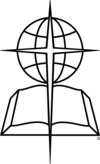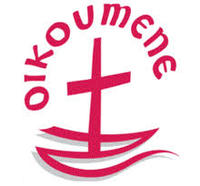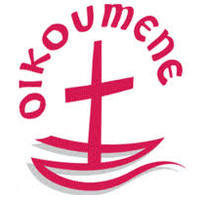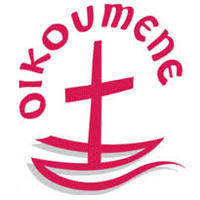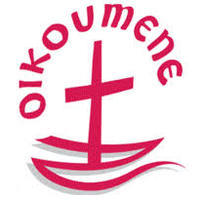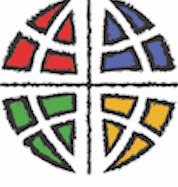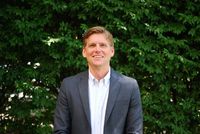Search
270 items
-
On Global Warming
This first half of this message posted on the Southern Baptist Convention website provides some key time frames with regard to ongoing climate issues. The second half focuses on responses from/actions taken by Southern Baptists. An additional overarching theme is humans responsibility for care for creation and, in particular, the poor. -
The United Church of Christ and Climate Change
This article from the United Church of Christ points to specified time periods/salient highlights of their responses to various environmental issues over the past 15 years. The United Church of Christ recognizes climate and energy issues as moral and ethical issues that affect everyone. However they also acknowledge that it most negatively impacts those with the least access to resources. -
A Resolution on Climate Change 2007 GS26
In 2007, The United Church of Christ put forth a resolution on climate change. They acknowledge the negative impact of global warming and urge governing bodies to support measures that reduce green house gas emissions. The following is an excerpt from the 2007 resolution on climate change:
"WHEREAS, the predicted impact of global warming will have a disproportionate impact on those living in poverty, least developed countries, the elderly and children and those least responsible for the emissions of greenhouse gases;
THEREFORE, BE IT RESOLVED that the Twenty-sixth General Synod of the United Church of Christ admits Christian complicity in the damage human beings have caused to the earth's climate system and other planetary life systems, and urges recommitment to the Christian vocation of responsible stewardship of God's creation, and expresses profound concern for the pending environmental, economic, and social tragedies threatened by global warming, to creation, human communities and traditional sacred spaces;
WE FURTHER RESOLVE that the Twenty-sixth General Synod of the United Church of Christ urges the United States Government to respond to global warming with great urgency and firm leadership by supporting mandatory measures that reduce the absolute amount of green house gas emissions, and in particular emissions of carbon dioxide, to levels recommended by nationally and internationally recognized and respected scientific bodies;" -
World Council of Churches Endorses Fossil Fuel Divestment
This message from the World Council of Churches (WCC) discuss their endorsement of fossil fuel divestment (2014 Geneva, Switzerland). WCC is one of a growing number of religious groups to support the fossil fuel divestment movement. The introduction is stated below:
"The Central Committee of the World Council of Churches (WCC), a fellowship of over 300 churches which represent some 590 million people in 150 countries, endorsed fossil fuel divestment this week, agreeing to phase out its own holdings and encourage its members to do the same." -
Care for Creation and Climate Justice
The World Council of Churches provides a brief description of their stance on care for creation and climate justice on their website. The following is an introductory statement, urging individuals forgo over-consumption and greed:
"The present world development model is threatening the lives and livelihoods of many, especially among the world's poorest people, and destroying biodiversity. The ecumenical vision is to overcome this model based on over-consumption and greed." -
WCC Executive Committee: global biodiversity crisis reaches urgent level
This article from the World Council of Churches discusses the current biodiversity crisis. The majority of land surfaces and ocean areas are significantly modified, and over 85% of the wetlands are gone. The following excerpt notes how this subsequently affects the poor and vulnerable:
"The statement notes that, increasingly, the drive for relentless expansion built into dominant economic systems are endangering the survival of many of God’s creatures. 'Ultimately our significant and adverse impacts on ecology will impact humanity’s own future,' the statement reads. 'Already they are destroying the very basis of sustenance of our income-poor, vulnerable and Indigenous sisters and brothers, who contribute least to the ecological damage for which human beings are collectively responsible.'" -
WCC augments Vatican’s call to address climate emergency
The World Council of Churches (WCC) calls on those in position of power to listen to the urgent protests and take action accordingly. The following is an excerpt from the article, indicating WCC's stance of solidarity with Vatican’s Dicastery promotion of integral human development:
“When we hear the call from the youth and children on the street, the facts from scientists with all the knowledge, the witnesses from indigenous people of the world and the cry from the Earth we must come together as one humanity in a hopeful action of transformation,” said Grape. “In this struggle for climate justice, the WCC is happy to be working in the same direction as the Vatican’s Dicastery for Promoting Integral Human Development. We work together in an open ecumenical spirit to end climate injustice and move to a more peaceful sustainable future.” -
Climate Change
The World Council of Churches calls individuals to modify their consumer lifestyle for the greater good - to improve shared environmental conditions for all and with less negative impact among the poor. This excerpt provides a sense of urgency to act to reverse the threat of climate change:
"The urgency of the threat of climate change requires our generation to take immediate action and go beyond simple declarations and statements. New alternative models of life are called for. We challenge all people to move towards a style of life that derives its quality from the attentive enjoyment of nature and human relationships, from mutual care, dependence, trust and solidarity instead of the illusions of individual autonomy and material wealth, from spirituality and feelings of community, connectedness and intimacy instead of one-dimensional self-centredness. We draw strength from insights gained from the rich, community- oriented and simple lifestyles of indigenous and other marginalized communities. We are conscious of the significant contribution these communities, with their low carbon economies, deliver to the stabilization of the climate. We recommend the creation of 'just, participatory, sustainable and sustaining communities' for mutual support and call upon the churches and authorities to join them on this journey with reflection and practical support." -
Economic globalization and ecology
In this message, the World Council of Churches (WCC) focuses on how economic globalization affects the environment, with a specific focus on economic justice. The following excerpt provides a succinct summary of what WCC strives to achieve in this area:
"In this context of growing inequality, concentration of power, social exclusion and ecological destruction, people are longing for life with dignity in just and sustainable communities. If that goal is to be attained we need to work for equity as basic fairness that also extends to other life forms, respect for diversity as recognition of the complementary of, for example, cultures species, religious traditions, accountability as a way of being responsible towards one another and Earth itself, participation as the optimal inclusion of all involved, sufficiency as a commitment to meet the basic needs of all, and subsidiarity as determining the most appropriate level for decision-making, supporting the downwards distribution of power." -
The Pope on Sustainability
An article written in Science Magazine covers the Pope's take on sustainability and environmental accountability. The Pope has inspired other religious leaders to also raise their voice about environmental issues like combating climate change. The introduction of the article notes that:
"The problems that motivate the Vatican are no different from those that concern the scientific community: depletion of nonrenewable resources, loss of ecosystem services, and risks from changing climate. But what the Vatican contributes is the rationale for taking action: because it is our moral responsibility to bequeath a habitable planet to future generations". -
Manifesto for an Ecological Reformation of Christianity
This Manifesto by the World Council of Churches is a call to examine Christian practices that may be harmful to the Earth, humans, and other species. It urges individuals instead to focus on what various “eco-congregations” or “green churches” are doing. The following manifesto excerpt provides a rationale for the need for ecological reformation:
"The need for an ecological reformation of all Christian traditions is of course manifested in different ways in various parts of the world. The pain impulses associated with ecological destruction have been registered especially in those areas that lie on the periphery of current constellations of economic power. The call for an ecological reformation of Christianity has come with particular urgency from Christians in such areas (the Pacific, Africa, Asia, Latin-America) as they are more exposed and vulnerable. This call is echoed by churches which belong to (mainly protestant) countries in the global North which have contributed heavily to the exploitation of natural resources, industrial production and a style of consumption that causes environmental degradation." -
Lutheran, Anglican, Episcopal leaders offer pastoral message on climate change
This message from leaders of the Evangelical Lutheran Church in America (ELCA), Evangelical Lutheran Church in Canada, Anglican Church of Canada, and The Episcopal Church, emphasizes that all individuals have contributed to climate change. However, they offer hope that God himself has not given up on care for creation. They urge individuals to discern opportunities to curb energy use, decrease carbon emissions, and reduce consumer waste. -
Episcopal Church, Church of Sweden, ELCA commitment: "Sustaining hope in the face of climate change"
The heads The Episcopal Church, the Church of Sweden, and the Evangelical Lutheran Church in America (ELCA) signed a joint commitment to climate statement. The following are five salient points from their commitment:
"1) Advocate for national and international policies and regulations that enable a swift transition from dependence on fossil fuels to clean, safe, renewable energy, and for economic systems that are fair and just.
2) Sustain an interfaith, international conversation around climate change and social and economic justice while working to keep climate change in the public’s attention.
3) Encourage our faith communities to deeper theological reflection on the moral and ethical response to climate change, and then to make public witness about climate change through advocacy at the local, national and international levels.
4) Invite our communities to prayerfully consider how their own actions, lifestyle choices – particularly our energy consumption -- affect the environment.
5) Offer our communities continued opportunities to learn about climate change and the universal church’s response to this crisis." -
A Spiritual Dimension and Environmental Education: Buddhism and Environmental Crisis
Kongsak Thathong writes about the environmental crisis and how a Buddhist environmental ethic may help in solving environmental problems. Buddhism may also help in education; the Lord Buddha encouraged environmental education, and learning about the Earth and its resources may protect it from the greed and selfishness that humanity spreads. Buddhism's three tenets of Right Behavior, Mind, and Understanding are virtues that people can change in themselves to care for the Earth.
-
Profile: John Hill
John Hill is a member of the General Board of Church and Society (GBSC) for The United Methodist Church. His work there includes overseeing their advocacy and organizing department. He also directs the economic and environmental justice program work. Having previously worked as a lobbyist in the private sector, John soon realized the difficulty of integrating faith into his occupation. Since joining The United Methodist Church in 2002, John enjoys the opportunities he has to work with individuals in ways that allow them to integrate faith more fully into their daily lives.
One example of John's passion projects, building a green roof for the United Methodist agency, can be found here https://www.umc.org/en/content/green-roof-reflects-united-methodist-care-for-earth. John discusses how this type of project is a way to show the organization's faith in action, serving as environmental stewards that can be seen by many throughout the D.C. area. In addition, their administration has switched to 100 percent renewable energy and installed water bottle fillers to reduce waste. -
Profile: Shantha Ready Alonso
Shantha Ready Alonso serves as Executive Director of Creation Justice Ministries. Since the start of her appointment in 2015, Shantha has prioritized racial-ethnic equity in support of protecting, restoring, and more rightly sharing God's creation. Shantha's work has appeared in The Hill, the Colorado Gazette, The Day, Sojourners, Patheos, and Justice Unbound. She has also been interviewed by NPR, Religion News Service, U.S. Catholic, and various podcasts.
Shantha has taken the initiative to arranged numerous stakeholder meetings between people of faith and policymakers. She has testified before the US Environmental Protection Agency, the US Department of Interior, and the White House Office of Management and Budget. Shantha is listed among the 2018 “Grist 50 Fixers," an annual list of emerging leaders from across the U.S. who are working on fresh, real-world solutions to our world’s biggest challenges. -
Engaged Organizations: Friends Committee on National Legislation
The Friends Committee on National Legislation (FCNL) was founded in 1943 by members of the Religious Society of Friends (Quakers). FCNL is a nonpartisan organization that seeks to live their lives based on values of integrity, simplicity, and peace as they build relationships across political divides to move policies forward. FCNL is comprised of an expert team of lobbyists on Capitol Hill who work with a grassroots network of tens of thousands of people across the country. They lobby Congress and the administration in order to advance peace, justice, opportunity, and environmental stewardship. -
Engaged Organizations: St. Vincent de Paul School, Mt. Vernon, OH
Creation care work at St Vincent de Paul School, Mt. Vernon, began in 2006 when the school received funding from the Knights of Columbus to purchase a dishwasher for their kitchen. Following this, the school began participating in the Hope Now program – an organization that provides used old donated doors to build tables. The school provides transportation to their annual K-6 field trip to The Brown Family Environmental Center at Kenyon College and their annual 5th grade summer camp through Lutheran Outdoor Ministries in Ohio (students take turns weighing food waste). Additional sustainability projects include collaboration with the parish and the local community. The school participated in an all-parish project through the Green Tree Plastics company’s A Bench for Caps sustainability program (students collected and sorted bottle caps in exchange for three benches). The school plans to create a grotto area using their three recycled benches. In order to foster green living and healthy community-school relations, the school provided planter flowers to local businesses.
Administrators at St. Vincent de Paul acknowledge the importance of maintaining social justice programs in accordance with Laudato Si's urgent message to care for the poor. Students from Beth’s Robinson's 6th grade social studies classes participate in a demographics project. Each year students select one continent, usually Africa, to learn more about the conditions of poverty. The class then raises money through various fundraisers and donate to parts of the continent through Catholic Relief Services. An upcoming project includes having students sew plastic bags together to create tarps to be donated to homeless shelters in the area.
-
Engaged Organizations: Trinity Catholic Elementary School, Columbus, OH
Creation care work at Trinity Catholic (see link below) began when one teacher there took the initiative to organize student gardening activities on school grounds. Following her retirement, the school subsequently began an annual Earth Day project in which students pick up trash around the school and surrounding area. Additional creation care projects were added over time. As a means to support social justice issues in accordance with Laudato Si' principles, the school contributes to food pantries on a regular basis. The proceeds from the monthly cereal mornings are designated to various local charities as well. As a way to physically demonstrate to students how much food is wasted in a typical day, students could weigh and record the wasted food from the cafeteria over a two-week period.
Years ago, one of the technology instructors had received a small grant from a computer company, which was designed to have students complete various environmentally based activities in a contest format. At the end of the contest, the class had accumulated enough points to receive two computer cameras. Additional events and projects includes 4th and 5th grader participation in a 5-day environmental camp "Messages of the Earth" at the Stratford Ecological Center (see link below), two water fountains updated to accommodate individuals with disabilities, design of the water fountains to fill water bottles, and lights throughout the school buildings switched out to LED lights through the Diocesan grant program.
-
Engaged Organizations: Catholic Diocese of Columbus, OH Development and Planning
Andrea Pannell, Episcopal Moderator for the Columbus Catholic Diocese, has been instrumental in the progress of creation care work within the office of development and planning. She views part of her job as to "plant seeds" whenever possible. The Bishop Pastoral Council, comprised of representatives from deaneries within the metro area, attend periodic meetings to address critical creation care issues. One project takes place at Andrea's own parish, St. Dominic’s Church, in the Mt. Vernon neighborhood of Columbus. They had maintained a vegetable garden to provide food for those in the area, some of whom rely on walking to get their groceries. The garden continues to be the only place for some locals to receive fresh food, as the area is considered to be a food desert. The development office was also key in linking the diocese's 150th anniversary and Laudato Si' with their tree planting initiative, as well as connecting the themes of the anniversary with salient points of Laudato Si'. Additional plans for further connections with development, planning and stewardship are still in the works.
-
Engaged Organizations: Orita's Cross Freedom School
The mission of Orita's Cross Freedom School is to cultivate student's natural sense of curiosity and skills to become agents of change within their community. They are a solution-oriented group, addressing pressing societal issues such as racism, gentrification, gender inequality, and the prison industrial complex. Some ways that the school promotes learning through doing includes civic engagement demonstrations, mentoring, and cultural awareness programs. -
Engaged Organizations: Black Church Food Security Network
The Black Church Food Security Network strives to provide fresh produce to historically Africa American churches within the Baltimore Metro area. Their popup farm stands provide convenience to the public as they are able to set up during times when congregation members typically gather. Ideally, members will either start their own gardens on site or expand ones that they currently maintain. Often, the farmers or urban growers will offer to lead bible studies and include food security issues as part of the sessions. -
Engaged Organizations: National Council of Churches Eco-Justice Programs
The National Council of Churches (NCC) discuss their work through their eco-justice programs on their website:
"The National Council of Churches has been a prophetic voice for justice and peace for its entire existence. In recent years, the NCC has been involved in a diverse range of issues such as poverty alleviation, protecting the environment, racial justice, and responding to the particular concerns of women. The NCC continues to remain engaged in these areas; however the primary program work in some cases has been spun off to new organizations that continue to bring the ecumenical community together to struggle for justice." -
Engaged Organizations: Web of Creation
The Web of Creation website discuss their organization aim and services that they provide:
"The Web of Creation was established to foster the movement for personal and social transformation to a just and sustainable world from religious perspectives. To that end, the information at this site will:
-Connect you with ideas, resources and strategies for doing eco-justice
-Inform, inspire, encourage, educate you about eco-justice
-Support you in your efforts to live, work and pray in ways that promote eco-justice
The Web of Creation has also been developed to provide information and connections for theology students interested in environmental ministry." -
Bloomberg Business Posts Infographic to Show “What’s Really Warming the World?”
Occasionally, an outstanding graphic emerges to help us understand some of the complexities of climate science, such as this recent series of graphs published by Bloomberg Business. If you have wondered how all the various factors and forcings involved in global warming interact, these infographics based on data from NASA’s Goddard Institute for Space Studies are very helpful.

